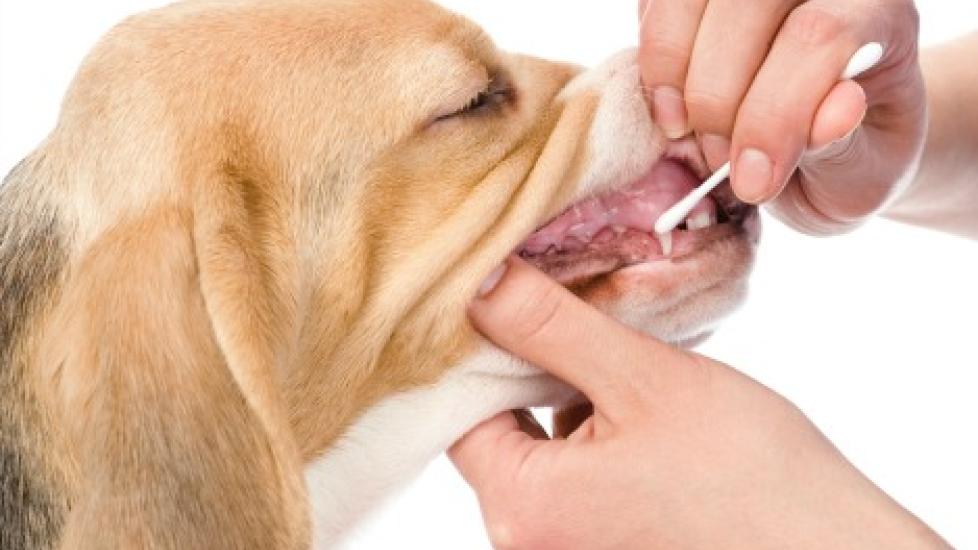The Hidden Benefits of DNA Testing for Dogs
By Nick Keppler
About ten years ago, DNA test kits started appearing in pet supply stores. The product is a boon to anyone who has adopted a shelter dog and is curious: Are those the strong legs of a Doberman? Is that beardy face inherited from an Airedale forefather? Does that swimming talent come from some Labrador Retriever blood?
The tests can also be important diagnostic tools for veterinarians. Many ailments and conditions stem from genetics passed down in the bloodlines of breeds and some sets of DNA complicate a dog’s reaction to medications.
Identifying Genetic Health Risks
DNA testing for dogs falls into two, potentially related categories – breed identification and identifying potential disease-causing mutations. Identifying a dog’s breed make-up with a DNA test may point to an increased likelihood of particular conditions developing in the future but is certainly not definitive. On the other hand, tests for specific genetic mutations, some of which are now being included in over the counter dog DNA test kits, are more predictive.
“It may not be a bad idea to test for known mutations that cause diseases that require additional care for owners,” says Anna Kukekova, an assistant professor of genetics at the University of Illinois at Urbana-Champaign’s Department of Animal Sciences. “Some breeds have unique mutations.”
Kukekova gives the example of progressive retinal atrophy (PRA), an irreversible, largely untreatable genetic disease that causes blindness. It’s been documented in more than 100 breeds, but is more common to some. It was first diagnosed in Gordon Setters. Given that vision problems in dogs have a variety of causes, prognoses and treatments, detecting the mutation that causes PRA can be a valuable step in predicting what the future holds for a particular dog.
“Knowing a dog’s combinations of breeds can spur the need to be aware of disease conditions known to affect a particular breed,” says Dr. Patrick Mahaney, a Los Angeles-based veterinarian and blogger.
For example, he says herding breeds, like shepherds and collies, often carry a defect in the multi-drug resistance gene, MDR1 [also called ABCB1], which yields an increased likelihood of adverse reactions to some commonly prescribed medications. “From a standpoint of care provision, knowing if my patient had a defect in the MDR1 gene would lend valuable insight as to the potential for adverse reactions,” says Mahaney.
Dog DNA Kits: What You Need to Know
Several companies sell DNA kits for dogs, both online and at pet stores. They range in price from about $60 to $90. Some of the higher-end tests justify their price in that the affiliated laboratories include tests for common disease-causing genetic mutations or supposedly have more dog breeds on file, allowing them to identify genes from breeds that are obscure in the U.S.
Most dog DNA tests include a swab to stick in the mouth and wipe the inner cheek of a no doubt confused mutt. Pet owners then send the swap, within a protective sleeve included in the kit, to the company’s lab. Buyers wait a few weeks and receive, via mail or email, a report detailing the probable breed ancestry of their dog (or dogs—a few kits offer multiple swabs).
Other Uses for Dog DNA Testing
Genetic testing can also be of use to animal shelters. A study published recently in The Veterinary Journal found that half the “Pit Bulls” in Florida shelters actually had no DNA related to Staffordshire Bull Terriers, American Pit Bull Terriers or any other breeds lumped into the Pit Bull category of breeds. Perceptions of Pit Bull Terriers is a touchy, complicated subject, but it does help shelters to unnecessarily place a stigmatized label on dogs in the middle of the uphill struggle of adoption.
Another use of dog DNA: forensics. In 2005, Stephen J. Dubner and Steven D. Levitt, the duo behind the Freakonomics books and podcast, argued in a New York Times column that New York City should keep a DNA library of dogs whose walkers don’t clean up after them and increase fines on repeat offenders. In 2010, members of a Baltimore condo association proposed keeping genetic samples of all of its canine residents in order to match them to droppings rudely left behind. This practice is now in place at several housing complexes and in some municipalities in the United States.
Image: Ermolaev Alexander via Shutterstock
